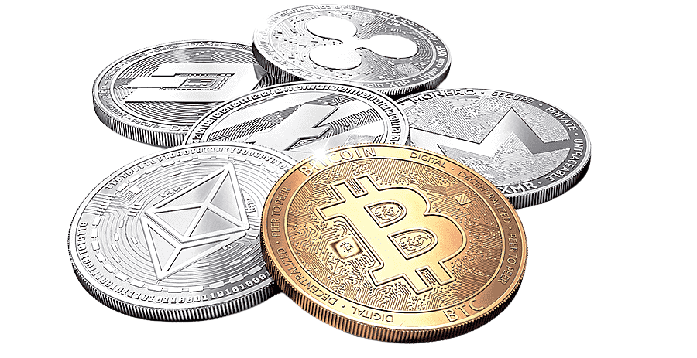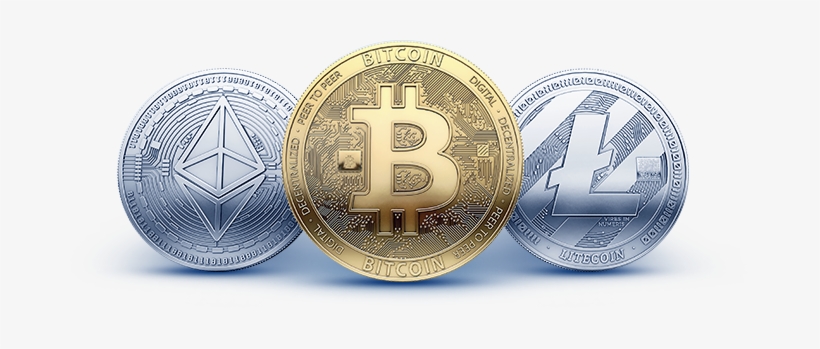Cryptocurrency License in Dubai
- Home
- Cryptocurrency License in Dubai, UAE

Understanding Cryptocurrency: Why Dubai Emerges as a New Hub
Introduction
In recent years, the world has witnessed a remarkable transformation in finance with the rise of cryptocurrency and its moving Graph. This decentralized digital currency has disrupted traditional financial systems, leaving many intrigued and wondering about its significance. Dubai is one region that has been making waves in the cryptocurrency space. This comprehensive blog will explore cryptocurrency, its global impact, and why Dubai has emerged as a new hub for this innovative technology.
Table of Contents
What is Cryptocurrency?
1.1 Definition and Basics
1.2 How Cryptocurrency Works
1.3 Types of Cryptocurrencies
Cryptocurrency and Global Finance
2.1 Disrupting Traditional Banking
2.2 Investment Opportunities
2.3 Regulatory Challenges
Dubai’s Cryptocurrency Ecosystem
3.1 The Dubai Blockchain Strategy
3.2 Cryptocurrency Exchanges in Dubai
3.3 Cryptocurrency Regulation in Dubai
Why Dubai is the New Hub for Cryptocurrency
4.1 Geographical Advantage
4.2 Economic Stability
4.3 Government Support
Cryptocurrency Licensing in Dubai
5.1 DAFZA Licensing
5.2 IFZA Licensing
5.3 DMCC Licensing
5.4 Types of Crypto Licenses
5.5 Licensing Costs and Required Documents
FAQs About Cryptocurrency and Dubai’s Role
What is Cryptocurrency?
1.1 Definition and Basics
Cryptocurrency is a digital or virtual currency that uses cryptography for security. Unlike traditional currencies issued by governments (such as the US dollar or AED), cryptocurrencies operate on a decentralized ledger technology called blockchain. All transactions are recorded on a public ledger, making them transparent and secure.
1.2 How Cryptocurrency Works
At its core, cryptocurrency transactions involve the transfer of digital assets from one party to another. These transactions are recorded in blocks on the blockchain. Once a block is complete, it is added to the chain chronologically. The most well-known cryptocurrency is Bitcoin, but thousands of other cryptocurrencies have various use cases.
1.3 Types of Cryptocurrencies
While Bitcoin is the pioneer and most recognized cryptocurrency, many others exist, including Ethereum, Ripple (XRP), Litecoin, and more. Each cryptocurrency has its unique features and purposes. For example, Ethereum is known for its innovative contract capabilities, allowing developers to create decentralized applications (DApps).
- Cryptocurrency and Global Finance
2.1 Disrupting Traditional Banking
Cryptocurrency can disrupt traditional banking systems by offering faster and cheaper cross-border transactions. It eliminates the need for intermediaries like banks, which can reduce transaction fees and increase financial inclusion for unbanked populations.
2.2 Investment Opportunities
Many investors have seen remarkable returns on their cryptocurrency investments. The volatile nature of cryptocurrencies has created opportunities for traders. At the same time, long-term investors have benefited from the market’s overall growth.
2.3 Regulatory Challenges
However, the cryptocurrency space also faces regulatory challenges. Different countries have varying stances on cryptocurrency, which can create uncertainty for businesses and users. Regulatory clarity is crucial for the long-term stability and adoption of cryptocurrencies.
- Dubai’s Cryptocurrency Ecosystem
3.1 The Dubai Blockchain Strategy
Dubai has been proactive in embracing blockchain and cryptocurrency technology. The Dubai Blockchain Strategy was launched to make Dubai the first city fully powered by blockchain by 2020. This ambitious initiative seeks to enhance government efficiency, industry creation, and international leadership.
3.2 Cryptocurrency Exchanges in Dubai
Dubai has several cryptocurrency exchanges, making buying, selling, and trading digital assets easier for residents and investors. These exchanges provide a user-friendly platform for cryptocurrency enthusiasts and traders.
3.3 Cryptocurrency Regulation in Dubai
Dubai’s regulatory approach to cryptocurrency is both forward-thinking and pragmatic. While it seeks to prevent illicit activities, it also recognizes the potential benefits of blockchain and cryptocurrency. The government has issued clear guidelines for businesses operating in the cryptocurrency space.
- Why Dubai is the New Hub for Cryptocurrency
4.1 Geographical Advantage
Dubai’s strategic location makes it an ideal hub for cryptocurrency enthusiasts and businesses. Dubai is a bridge for international trade and investment between Europe and Asia. This geographical advantage has attracted entrepreneurs and investors from around the world.
4.2 Economic Stability
Dubai boasts a robust and stable economy, making it a haven for investments. Its business-friendly policies, tax advantages, and modern infrastructure have contributed to its attractiveness as a cryptocurrency hub.
4.3 Government Support
One of the critical factors driving Dubai’s emergence as a cryptocurrency hub is government support. Dubai’s leadership recognizes the potential of blockchain and cryptocurrency to transform various industries, including finance, healthcare, and logistics. Their proactive approach and willingness to embrace innovation have positioned Dubai as a global leader in the crypto space.
- Cryptocurrency Licensing in Dubai
Dubai offers various licensing options for cryptocurrency businesses, with two prominent free zones known for their crypto-friendly environments: DAFZA (Dubai Airport Free Zone Authority) and IFZA (International Free Zone Authority). The DMCC (Dubai Multi Commodities Centre) is another notable option.
5.1 DAFZA Licensing
Step 1: Choose Your Business Activity
Before applying for a DAFZA cryptocurrency license, you must determine the specific cryptocurrency-related activities your business will engage in, such as trading, wallet services, or ICO launch.
Step 2: Prepare Required Documents
To apply for a DAFZA cryptocurrency license, you will typically need the following documents:
- Passport copies of shareholders
- Business plan outlining your cryptocurrency activities
- Proof of initial capital
- NOC (No Objection Certificate) from your current sponsor if you are in the UAE
- Completed application forms
Step 3: Licensing Costs
The cost of setting up a DAFZA cryptocurrency license may vary depending on your specific business needs and the type of license you require. It’s advisable to contact DAFZA directly for accurate cost estimates.
5.2 IFZA Licensing
Step 1: Determine Your Business Activities
Identify the cryptocurrency-related activities your business intends to carry out, such as cryptocurrency trading, wallet services, or ICOs.
Step 2: Gather Required Documents
To apply for an IFZA cryptocurrency license, you will typically need the following documents:
- Passport copies of shareholders
- Comprehensive business plan detailing your cryptocurrency activities
- Proof of initial capital
- NOC (No Objection Certificate) from your current UAE sponsor (if applicable)
- Completed application forms
Step 3: Licensing Costs
The cost of setting up an IFZA cryptocurrency license may vary based on your specific business requirements and chosen license type. It’s recommended to contact IFZA directly for precise cost details.
5.3 DMCC Licensing
Step 1: Define Your Cryptocurrency Activities
Specify the cryptocurrency-related activities you plan under your DMCC license, such as cryptocurrency trading, wallet services, or blockchain development.
Step 2: Gather Necessary Documents
To apply for a DMCC cryptocurrency license, you will generally need the following documents:
- Passport copies of shareholders
- A comprehensive business plan outlining your cryptocurrency activities
- Proof of initial capital
- NOC (No Objection Certificate) from your existing UAE sponsor (if applicable)
- Completed application forms
Step 3: Licensing Costs
The cost of obtaining a DMCC cryptocurrency license can vary based on your business needs and the type of license you select. For precise information on licensing costs, it’s best to contact DMCC directly.
5.4 Types of Crypto Licenses
Dubai offers various types of cryptocurrency licenses to cater to different business activities. These may include cryptocurrency trading, wallet services, and ICO launches. Each license type may have its requirements and costs, so it’s essential to research and choose the one that aligns with your business objectives.
- FAQs About Cryptocurrency and Dubai’s Role
6.1 What is the future of cryptocurrency in Dubai?
The future of cryptocurrency in Dubai looks promising. With its proactive approach, stable economy, and government support, Dubai is well-positioned to continue growing as a cryptocurrency hub.
6.2 Is cryptocurrency legal in Dubai?
Yes, cryptocurrency is legal in Dubai, and the government has issued clear regulations. Businesses operating in cryptocurrency must adhere to these regulations to ensure compliance.
6.3 How can I invest in cryptocurrency in Dubai?
To invest in cryptocurrency in Dubai, you can register with a reputable cryptocurrency exchange, complete the necessary KYC (Know Your Customer) procedures, and start trading digital assets.
6.4 What are the risks associated with cryptocurrency investments?
Cryptocurrency investments are associated with risks, including price volatility and regulatory changes. It’s essential to conduct thorough research and only invest what you can afford to lose.
In conclusion, Dubai’s cryptocurrency ecosystem offers a thriving environment for businesses and investors in the crypto space. With multiple licensing options, strong government support, and a strategic location, Dubai is poised to continue its journey as a global cryptocurrency hub. If you’re considering establishing a cryptocurrency business in Dubai, carefully follow the steps and requirements outlined for the respective free zones to ensure a smooth licensing process.
6.5 How much does it cost to get a crypto License in Dubai?
The cost to start a crypto license in Dubai can vary significantly depending on several factors, including the license type, the specific free zone you choose, the scope of your cryptocurrency-related activities, and any additional services or facilities you may require. As of my last knowledge update in September 2021, here is a general guideline for the cost range you can expect:
- Initial Application Fee: The initial application fee for a crypto license in Dubai’s free zones can typically range from AED 7,500 to AED 15,000 or more. This fee is non-refundable and covers the evaluation of your application.
- License Fee: The annual license fee can vary depending on the license type and the free zone. It may range from AED 10,000 to AED 50,000 or more.
- Office Space: If you require physical office space within the free zone, you must consider the cost of renting or leasing office facilities. The cost of office space can vary significantly based on location and size.
- Visa Fees: If you or your employees require residency visas to work in the UAE, you must factor in the associated visa processing fees.
- Additional Costs: There may be additional costs related to documentation, legal services, notarization, and other administrative expenses.
It’s important to note that the cost of a crypto license in Dubai can change over time due to regulatory updates, changes in free zone policies, and other factors. Additionally, different free zones may have varying fee structures and requirements.
The exact cost may differ for getting a crypto license in Dubai; contacting the relevant free zone authorities or consulting with a business setup advisor who can provide personalized guidance based on your specific business needs and goals is advisable. The cost may vary based on Dubai’s evolving cryptocurrency regulatory landscape.
6.6 Why do I need a Cryptocurrency License in Dubai?
Obtaining a cryptocurrency license in Dubai is essential for several reasons:
- Regulatory Compliance: Dubai, like many other jurisdictions, has recognized the need to regulate cryptocurrency activities to prevent illegal activities such as money laundering, fraud, and terrorist financing. Obtaining a cryptocurrency license ensures that your business operates within the legal framework and complies with regulations set by the government.
- Legal Protection: Having a cryptocurrency license provides legal protection for your business. In case of any disputes or legal issues, having a permit demonstrates that your operations are legitimate and authorized by the relevant authorities.
- Trust and Credibility: A cryptocurrency license enhances trust and credibility among customers, investors, and partners. It signals that your business is transparent, accountable, and committed to complying with industry standards and regulations.
- Access to Banking Services: Many banks in Dubai and worldwide must be more cautious about dealing with cryptocurrency-related businesses. Holding a valid cryptocurrency license increases your chances of establishing banking relationships, which are crucial for the financial operations of your business.
- Global Expansion: With a Dubai cryptocurrency license, your business gains credibility not only in the UAE but also on the international stage. It opens doors to global markets and partnerships, as other countries require companies to demonstrate regulatory compliance.
- Investor Confidence: Investors are likelier to invest in a cryptocurrency business that operates legally and transparently. A cryptocurrency license can attract potential investors looking for trustworthy opportunities in the crypto industry.
- Avoiding Legal Consequences: Operating a cryptocurrency business without the required license can result in legal consequences, including fines, penalties, and even the shutdown of your business. Obtaining the proper consent helps you avoid these risks.
- Participation in Government Initiatives: Dubai actively promotes blockchain and cryptocurrency technology through government initiatives like the Dubai Blockchain Strategy. Holding a cryptocurrency license may make your business eligible to participate in these initiatives and benefit from government support.



